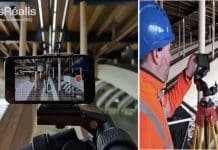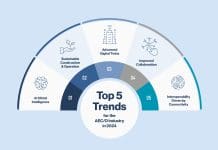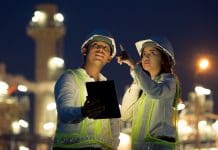Chris Barlow, innovation director at Data Communications Company discusses the growth of 5G, Internet of Things (IoT) and how fibre infrastructure is helping build the networks of the future
Cities in Britain are getting smarter. From Manchester’s Triangulum Project to Hull’s Smart City OS, smart cities are increasingly becoming the norm.
But to make smart cities sustainable for the future, our connectivity infrastructure needs to be underpinned by an efficient energy network. Smart cities need to improve energy efficiency, not just to save money, but also to help the country reach its net-zero carbon emissions targets.
With some parties becoming sceptical of increased technological adoption in city planning, smart cities must immediately show their value by reducing energy costs and bringing about tangible change in everyday life. This will help drive community engagement, while also getting Britain on track to becoming a world leader in green technology.
The wide scope of connected devices
When it comes to smart cities, there is huge potential to connected technologies to enhance energy efficiency. Around the globe, connected devices are already allowing for rich, connected services that are benefiting people today.
Think of the modern smart meter, for example. It might not be the first thing that comes to mind when you think of smart cities, but smart meters are now commonplace, with more than 9 million fully interoperable ones already online in homes and small businesses across Britain.
This vast network of connected devices sends hundreds of millions of messages a month (more than 230 million in November 2020 alone) over the DCC’s countrywide network, improving the energy efficiency of countless sites.
But smart meters can be used for much more than measuring energy consumption; they can offer a gateway to many more smart city innovations.
For instance, the traffic monitoring project in Copenhagen, which monitors cycle traffic to enhance cycling routes in real-time. This would not be possible without a network of connected devices, in contact with one another feeding data back to a central hub.
Or jump over the Atlantic to Chicago, where city planners are installing 270,000 smart LED street lamps that are estimated to save the city $10 million each year in reduced energy costs. This smart street furniture works on the same principle as the humble smart meter: a connected device helping users to be more energy-savvy.
The need for energy efficiency
The next step for the smart city ecosystem is improving overall efficiency even further. When every facet of a smart city communicates to optimise energy usage, and leverages renewables as much as possible, suddenly we see huge savings in energy consumption.
As energy is brought into the digital age, ensuring data anonymity and security will be crucial for the continued success of smart cities. A commitment to this needs to be enshrined in government policy and meet the highest security standards: secure data will bring about a more sustainable system that can be trusted to advance environmental conservation initiatives.
If the widespread growth of smart cities is to continue, delivering dramatic improvements in the energy consumption of densely populated urban environments, such growth will depend upon a singular, smart energy network to underpin it.
What next?
We will see further expansion in the volume and scope of connected smart cities as the Covid-19 pandemic continues to reshape our relationships with our cities.
Across the globe, we are seeing citizens – who originally relocated to crowded metropolises for work – begin to demand more hospitable, calm and caring living environments, as the pandemic removes (or reduces the frequency of) their daily commute.
From traffic calming to predictive lighting, connected devices will increasingly be called upon to improve day-to-day city life over the coming years. The DCC’s secure national network provides just one example of how these devices can enhance energy usage, to the benefit of consumers and businesses alike.
We believe that we are at a pivotal moment in the future of our national energy infrastructure. The decisions we make now will lay vital foundations for our society over the next 30 years. Soon, we will realise our ambitions of hyper-efficient, connected smart cities that open up a wealth of opportunities for everyone.
Chris Barlow
Innovation director
Data Communications Company (DCC)

















